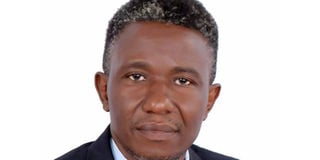Obote, Amin, Museveni and whether Ankunda’s daddy didn’t die in vain

What you need to know:
- And in all likelihood, his final thoughts as he stared into the grave waiting to receive him was, “what will happen to my children?”
When, in detention, he met someone he knew, his first question was how his wife and children were.
And in all likelihood, his final thoughts as he stared into the grave waiting to receive him was, “what will happen to my children?”
Images of seven happy faces flashed through his mind… and when he got to the eighth, the last born, Pamela, his mind lingered just a bit, as pain tore through his heart. She was much too young, just a toddler!
Izdor Turwomwe was, in all likelihood, not concerned with his horrific ending but how his kids would fare, now that he, who had in Pamela’s words “started to shape my future for me, not by words, but by action,” was on the cusp of eternity.
On December 3, 2020, my very lovely friend Pamela Ankunda, one of the President’s blue-eyed girls, launched her book Pieces of Time at Kampala Serena Hotel, an event whose chief guest was the venerable prime minister emeritus, Amama Mbabazi.
It is a beautifully written 238-page affair, put together by a supremely gifted writer. A little girl, who grew up deprived of the incredible love affair that a dad-daughter relationship is, resolves to discover who her father was, how he died and where he was buried.
Turwomwe, who was a strategic collaborator for Yoweri Museveni’s NRA during the civil war in the early 1980s, ran out of luck in 1982 when he was arrested, detained and tortured for long in Katikamu, Luweero District, then buried alive in a grave he himself had dug.
Pieces of Time is a horror movie! It’s made worse by Pamela’s spellbinding power of narration and description.
One small problem, though. There is no doubt Uganda saw incredible human rights abuses by armed forces and intelligence agencies in the reign of Idi Amin (1971 to 1979) and Milton Obote (1981 to 1985).
But the more you read Pamela’s book, the more you ask yourself what has changed. Try this on page 86: “People had been disappearing, and government had made some frightening announcements.” Just change dates and names, and the book reads like a precision commentary of what is happening today, under Museveni, the great “liberator” and “freedom fighter”. People are being killed, detained for years on end, tortured beyond recognition. Same old same! Shame, old shame!
When you compare the three major presidents of Uganda – Obote, Amin and Museveni – Obote is the odd man out. First, Obote was not a soldier. Secondly, unlike the other two, he was humane – at least he had a heart. His main failing was inability to control the army and intelligence organs, which can never possibly be said about Amin and Museveni.
Little wonder Obote lost power twice – each time ousted by his army chief at the time. Amin’s ouster was externally generated – by the Tanzanians. Think! In a couple of days – January 26 – Uganda will observe a public holiday as we mark what Mr Museveni christened “Liberation Day,” the 35th anniversary of the day he captured power. To believe that Uganda has since been liberated from anything depends on who you choose to be: a pragmatist who distils the truth from the many lies on offer, or a complete idiot who believes everything you are told.
Two thoughts.
One. If Mr Museveni is happy with the horrific deaths and reign of terror unleashed upon Ugandans in the full glare of international cameras, one wonders what happened in the bush where there were no cameras and no internet and no witnesses.
Two. Was it for Uganda to be free or for Museveni to take power, that men like Izdor Turwomwe died? If it’s the latter case, fine. But if it’s the former, then it is time to ask whether their deaths were worth it, for we are back to where we began.
Be sure a million Pamela Ankundas will, in the years to come, arise and write their own Pieces of Time, telling how they missed out on their fathers, because those men had the temerity to stand in the way of a despot who entered appearance in 1986, with absolutely no intention to ever leave power.
Mr Tegulle is an advocate of the High Court of Uganda
[email protected]




